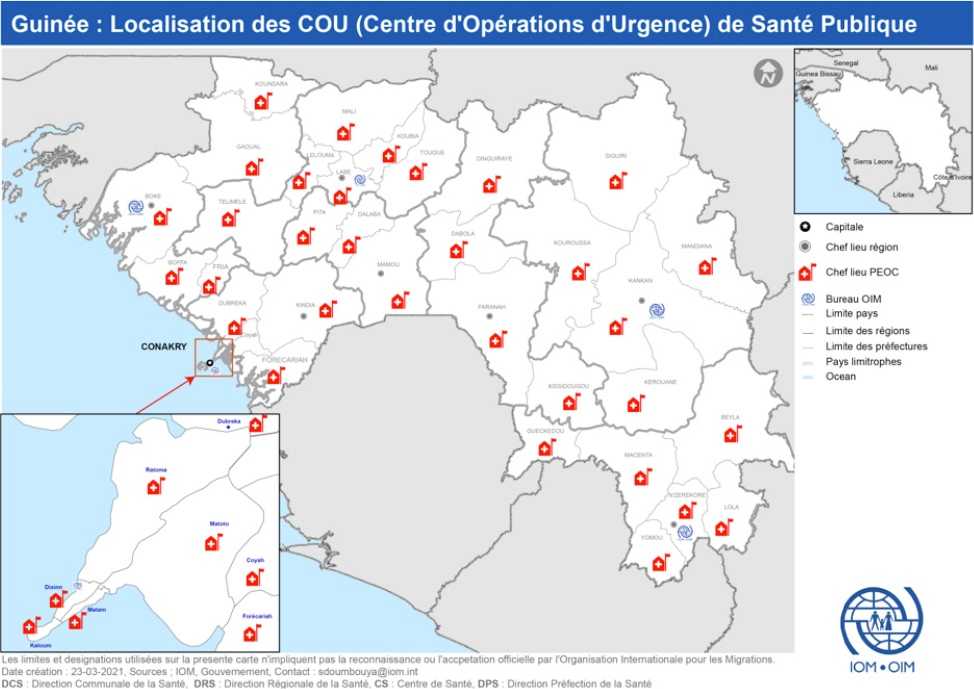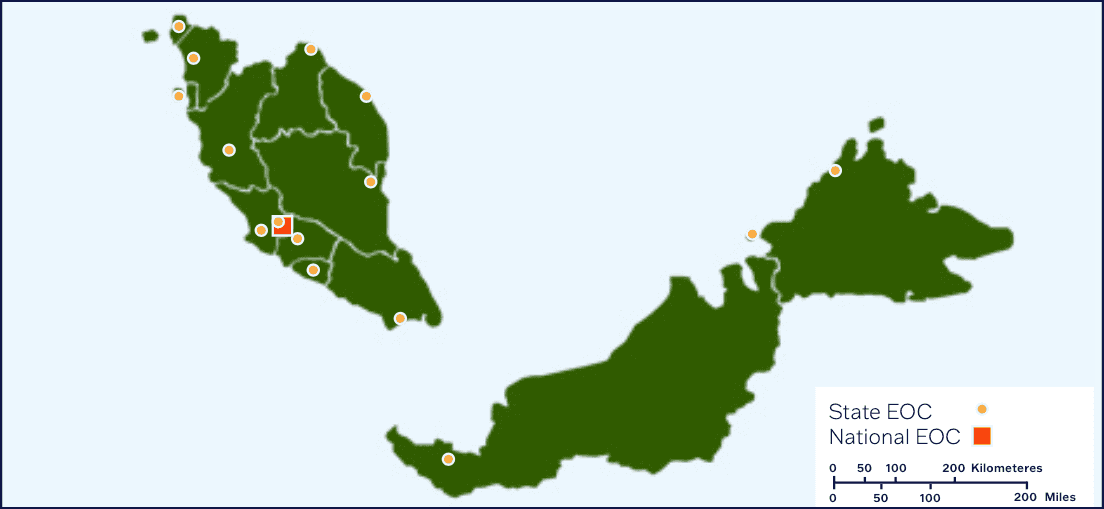Case Studies
Contact usThe application of emergency management principles to epidemic responses, and the use of an Emergency Operations Center to do so, can take many forms. Context is important, and so there is never a “one size fits all” solution to strengthening or operationalizing public health emergency management capabilities.
To help support epidemic emergency management in the context of the COVID-19 response, we are developing a series of case studies in collaboration with partners across the world, to demonstrate how different countries have developed and operationalized their EOCs to support the pandemic response at the national and sub-national levels. We hope that these examples will help illustrate the different ways in which public health emergency management capabilities can be build and sustained, and utilized for epidemic response.
Guinea Public Health Emergency Operations Center (PHEOC) Case Study
Apr 8, 2021
Amadou Traore1, Aboubacar Sidiki Cissé2, Jean Traore2, Bouna Yattassaye2, Appolinaire Lamah3, Abdoulaye Wone3, Mamadou Baldé4, Brenna Means5,6, Ileana Vélez5,6, James Banaski6, Claire J. Standley 6,‡
Guinea’s Public Health Emergency Operations Center (PHEOC) is a department within the National Agency for Health Security (Agence National de Sécurité Sanitaire, or ANSS), a public health agency operating with financial and administrative autonomy under the Ministry of Health. It has a recognized legal mandate to perform emergency response functions, warranted by both the presidential decree that created the ANSS in 2016 and the Ministerial ruling that attributed the functions of each of its five departments, one of which includes the EOC.
read moreNigeria State Level Public Health Emergency Operations Centers Case Study
Jan 7, 2021
James Banaski1&, Winifred Ukponu2&, Everistus Aniaku3, Andebutop Ashasim Elisha4, Charity Ezeudu5, Stephen Fagbemi6, Ibrahim B. Gobir2, Kamaldeer Khadeejah7, Piring’ar Mercy Niyang2, Peace Nwogwugwu8, Ryan Remmel1,9, Rabi Usman10, Claire J. Standley1‡
The Federal Republic of Nigeria, through the Nigeria Centre for Disease Control, developed the National Incident Coordination Center (NICC) in 2017. The NICC serves as the PHEOC during an outbreak or other emergency requiring support from the Federal Ministry of Health. The NICC monitors outbreaks and public health events 24 hours a day/7 days a week, serves as the PHEOC during an emergency, manages the deployment of Rapid Response Teams (RRTs), serves as a central networking location for State level PHEOCs, and is staffed by trained professionals that can deploy within two hours or less.
read moreMalaysia Emergency Operations Center (EOC) Case Study
Oct 26, 2020
Badrul Samad1, Brenna Means2, 3, Ileana Vélez2, 3, James Banaski3, Claire J. Standley3*
Established in 2007, the Ministry of Health (MoH) Crisis Preparedness & Response Centre (CPRC) in Putrajaya originally dealt with nationwide communicable disease outbreaks using a legal mandate under the Prevention and Control of Infectious Diseases (PCID) Act 1988 (also known as Act 342). Starting from 2013, as it expanded its scope to encompass an all-hazards approach, the CPRC now also uses the National Security Council (NSC) Directive No. 20 to support its legal mandate to coordinate public health emergency response to disasters at the national level.
read more

